Economics
Unmasked
 Philip Bartlett Smith was a American-Dutch experimental physicist. He taught for eight years in Brazil as a McCarthyera exile, and later joined the University of Groningen as a Professor of Physics, where he remained until his retirement in 1988. He was a member of the Board of Pugwash Netherlands until 2003. He had a tense relationship with his native US, which he labelled The Holy American Empire and whose power policy he abhorred. After his retirement he concentrated on the subjects of deep concern to him: disarmament, environment and energy, poverty and world economics. He was co-editor with S. E. Okoye, J. de Wilde and P. Deshingkar of The World at the Crossroads: Towards a sustainable, equitable and livable world and the editor of Dimensions of Sustainability, proceedings of the INES Congress Challenges of Sustainable Development, Amsterdam, August 1996. Philip passed away on December 15, 2005.
Philip Bartlett Smith was a American-Dutch experimental physicist. He taught for eight years in Brazil as a McCarthyera exile, and later joined the University of Groningen as a Professor of Physics, where he remained until his retirement in 1988. He was a member of the Board of Pugwash Netherlands until 2003. He had a tense relationship with his native US, which he labelled The Holy American Empire and whose power policy he abhorred. After his retirement he concentrated on the subjects of deep concern to him: disarmament, environment and energy, poverty and world economics. He was co-editor with S. E. Okoye, J. de Wilde and P. Deshingkar of The World at the Crossroads: Towards a sustainable, equitable and livable world and the editor of Dimensions of Sustainability, proceedings of the INES Congress Challenges of Sustainable Development, Amsterdam, August 1996. Philip passed away on December 15, 2005.
 Manfred Max-Neef is a Chilean-German economist in the field of international development. His key works are From the Outside Looking in: Experiences in Barefoot Economics and Human Scale Development, the latter declared by the University of Cambridge as one of the 50 most important books on sustainability. He taught in Berkeley in the early 1960s and was visiting professor in several US, Latin American and European Universities. He also worked for several UN agencies, and between 1994 and 2002 was Vice-Chancellor of the Universidad Austral de Chile in Valdivia. In 1983 he received the Right Livelihood Award (Alternative Nobel Prize). He holds honorary doctorates from Jordan, Colombia, Argentina and the US, and has been the recipient of the University Award of Highest Honour from Japan. He is the Director of the Economics Institute of the Universidad Austral de Chile.
Manfred Max-Neef is a Chilean-German economist in the field of international development. His key works are From the Outside Looking in: Experiences in Barefoot Economics and Human Scale Development, the latter declared by the University of Cambridge as one of the 50 most important books on sustainability. He taught in Berkeley in the early 1960s and was visiting professor in several US, Latin American and European Universities. He also worked for several UN agencies, and between 1994 and 2002 was Vice-Chancellor of the Universidad Austral de Chile in Valdivia. In 1983 he received the Right Livelihood Award (Alternative Nobel Prize). He holds honorary doctorates from Jordan, Colombia, Argentina and the US, and has been the recipient of the University Award of Highest Honour from Japan. He is the Director of the Economics Institute of the Universidad Austral de Chile.
Economics
Unmasked
From power and greed to
compassion and the common good
Philip B. Smith & Manfred Max-Neef
First published in the UK in 2011 by
Green Books
Foxhole, Dartington,
Totnes, Devon TQ9 6EB
Copyright 2011 Philip B. Smith & Manfred Max-Neef
All rights reserved. No part of this book may be transmitted or reproduced in any form or by any means without permission in writing from the publisher.
Design by Jayne Jones
Cover design by Rick Lawrence and Jayne Jones
Diagrams by Rick Lawrence
Print edition ISBN 978 1 900322 70 6
PDF edition ISBN 978 0 85784 031 8
ePub edition ISBN 978 0 85784 032 5
Dedication
To those who believe that life, love and happiness
are more important than the economy.
To those who believe that a more humane economy is possible.
To those who are willing to stop living better than others,
in order to start living well with others.
Acknowledgements
Our gratitude to Henny and Gabriela for their love, loyalty
and permanent encouragement.
Our admiration to Alethea Doran, the most professional and
rigorous editor we have ever come across.
Preface
The story behind this book
This book is the result of a long dialogue between a physicist and an economist.
Philip Smith, who obtained his PhD in Physics at the University of Illinois, taught for seven years in Brazil an exile from the McCarthy era and later for 25 years at the University of Groningen in the Netherlands. After his retirement he informed friends and colleagues that he had read three full metres of books on economics, and that he was prepared to discuss the discipline. What motivated him was his deep and lifelong commitment to social justice. As a physicist he was a leading member of Pugwash, an anti-nuclear-proliferation organization, whose scope was beyond the mere limiting of nuclear weapons. His main concern was about ethical choices in society, the economy and the environment. During his navigation through those three metres of books, he realized not only that neoclassical economics was a pseudo-science full of inconsistencies and failings, as a consequence of its effort to look as similar as possible to physics, but also that the primary purpose of the discipline, in its neoclassical version, was to serve the function of defending the status quo of wealth and power. It was a discipline clearly divorced from any possibility of social justice.
In turn, I (Manfred Max-Neef) became an economist at the University of Chile, and started my academic career at 27 years of age, as a Lecturer in Berkeley during the early sixties. After my California period I worked for the Organization of American States and later for the FAO (Food and Agriculture Organization) and ILO (International Labour Organization) of the United Nations, in the field, in rural and urban areas of extreme poverty. It was there that one day, in a village of the Andean Sierra, I was standing in the mud and in front of me, also in the mud, was standing a thin man, hungry and jobless, with five children, a wife and a grandmother. While we were looking at each other I was overwhelmed by a sudden consciousness that I lacked a language that could make sense in such a situation. My whole discourse as a conventional academic economist was absolutely inadequate for me to say anything significant. I was used to diagnosis and analysis, but I was not used to understanding. I knew all about poverty and had all the statistics, yet there I was, speechless, when looking poverty in the face. It became clear to me that I had to invent a new language. That was the origin of my principles of barefoot economics, and my rebirth as an absolute dissident of mainstream economics due to its inability to interpret poverty and, hence, social justice.
It was just a matter of Jungian synchronicity that the paths of the physicist and the economist had to converge. The encounter occurred in August 1996 in Amsterdam during the Congress of Challenges of Sustainable Development organized by the International Network of Engineers and Scientists for Global Responsibility. Philip and I were together in a workshop and developed an immediate empathy. Long and lively conversations followed in the two evenings we spent together walking along the Amsterdam channels and drinking some fine Chilean wines. Our friendship was consolidated. We exchanged frequent correspondence, and about five years later the idea arose that we might try to write a book together with the purpose of revealing how economics would look behind its mask of a supposedly hard, value-free, mathematical science.
I invited Philip to come to Valdivia in Chile, where I was Rector of the University. He stayed for three months of intense, entertaining and often funny conversations about economics, social justice, transcendence, spirituality, chaos theory and quantum physics. We floated happily in a marvellous transdisciplinarity that brought us closer and closer to understanding the frustrated relationship between economics and the real world. We decided that Philip would write a draft of the first part of the book, concerned with the critical analysis of the development of economics, and I would later write an additional part, with proposals for a new economics coherent with the challenges of the twenty-first century. We discussed his drafts by mail, and we were in full agreement about the final versions that are presented in this book.



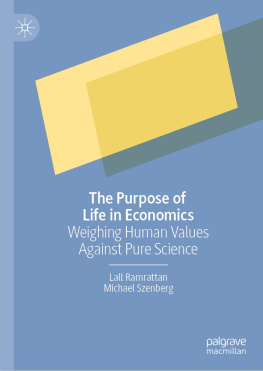
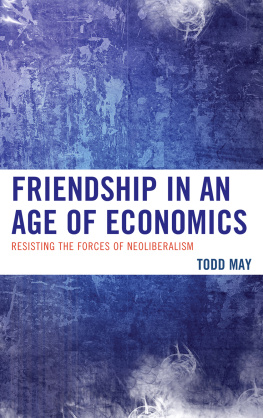
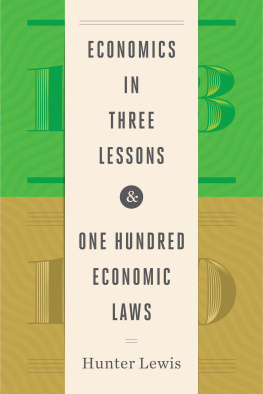
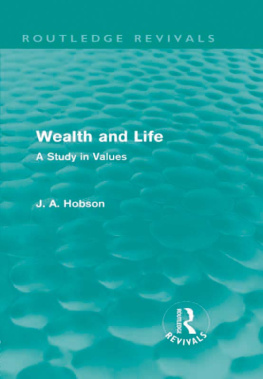
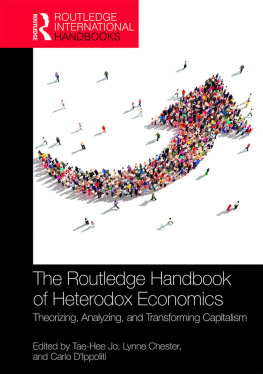
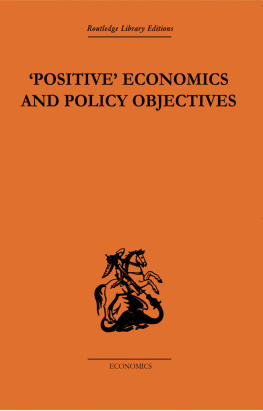
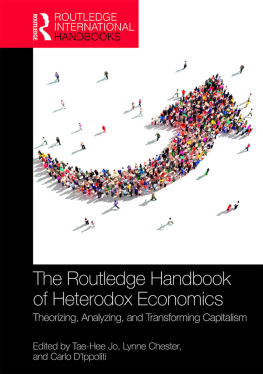
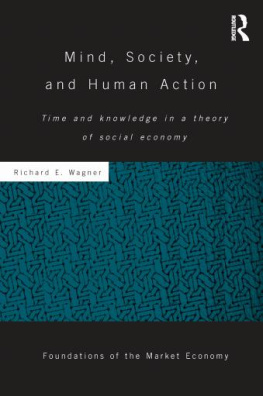
 Philip Bartlett Smith was a American-Dutch experimental physicist. He taught for eight years in Brazil as a McCarthyera exile, and later joined the University of Groningen as a Professor of Physics, where he remained until his retirement in 1988. He was a member of the Board of Pugwash Netherlands until 2003. He had a tense relationship with his native US, which he labelled The Holy American Empire and whose power policy he abhorred. After his retirement he concentrated on the subjects of deep concern to him: disarmament, environment and energy, poverty and world economics. He was co-editor with S. E. Okoye, J. de Wilde and P. Deshingkar of The World at the Crossroads: Towards a sustainable, equitable and livable world and the editor of Dimensions of Sustainability, proceedings of the INES Congress Challenges of Sustainable Development, Amsterdam, August 1996. Philip passed away on December 15, 2005.
Philip Bartlett Smith was a American-Dutch experimental physicist. He taught for eight years in Brazil as a McCarthyera exile, and later joined the University of Groningen as a Professor of Physics, where he remained until his retirement in 1988. He was a member of the Board of Pugwash Netherlands until 2003. He had a tense relationship with his native US, which he labelled The Holy American Empire and whose power policy he abhorred. After his retirement he concentrated on the subjects of deep concern to him: disarmament, environment and energy, poverty and world economics. He was co-editor with S. E. Okoye, J. de Wilde and P. Deshingkar of The World at the Crossroads: Towards a sustainable, equitable and livable world and the editor of Dimensions of Sustainability, proceedings of the INES Congress Challenges of Sustainable Development, Amsterdam, August 1996. Philip passed away on December 15, 2005. Manfred Max-Neef is a Chilean-German economist in the field of international development. His key works are From the Outside Looking in: Experiences in Barefoot Economics and Human Scale Development, the latter declared by the University of Cambridge as one of the 50 most important books on sustainability. He taught in Berkeley in the early 1960s and was visiting professor in several US, Latin American and European Universities. He also worked for several UN agencies, and between 1994 and 2002 was Vice-Chancellor of the Universidad Austral de Chile in Valdivia. In 1983 he received the Right Livelihood Award (Alternative Nobel Prize). He holds honorary doctorates from Jordan, Colombia, Argentina and the US, and has been the recipient of the University Award of Highest Honour from Japan. He is the Director of the Economics Institute of the Universidad Austral de Chile.
Manfred Max-Neef is a Chilean-German economist in the field of international development. His key works are From the Outside Looking in: Experiences in Barefoot Economics and Human Scale Development, the latter declared by the University of Cambridge as one of the 50 most important books on sustainability. He taught in Berkeley in the early 1960s and was visiting professor in several US, Latin American and European Universities. He also worked for several UN agencies, and between 1994 and 2002 was Vice-Chancellor of the Universidad Austral de Chile in Valdivia. In 1983 he received the Right Livelihood Award (Alternative Nobel Prize). He holds honorary doctorates from Jordan, Colombia, Argentina and the US, and has been the recipient of the University Award of Highest Honour from Japan. He is the Director of the Economics Institute of the Universidad Austral de Chile.